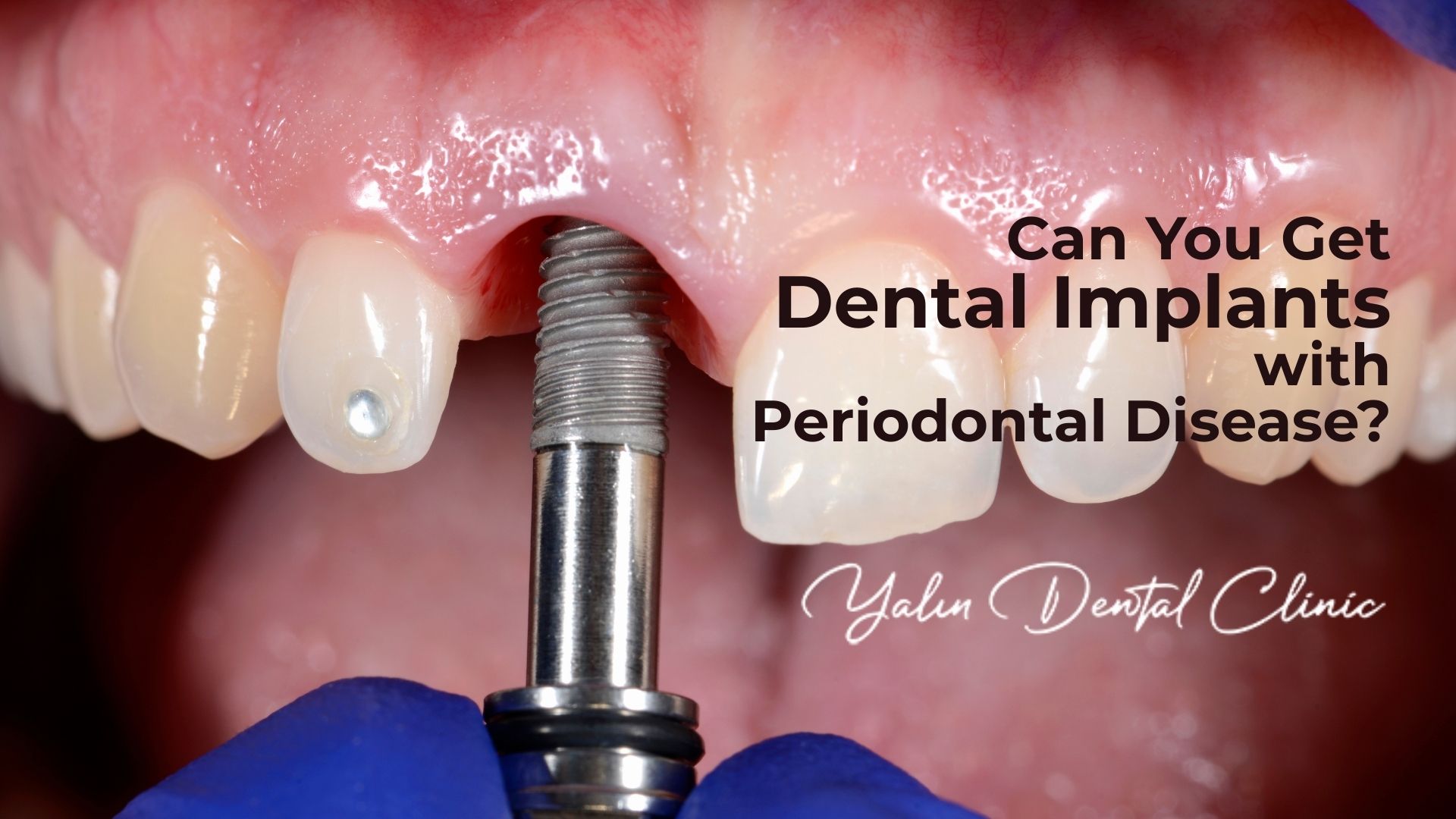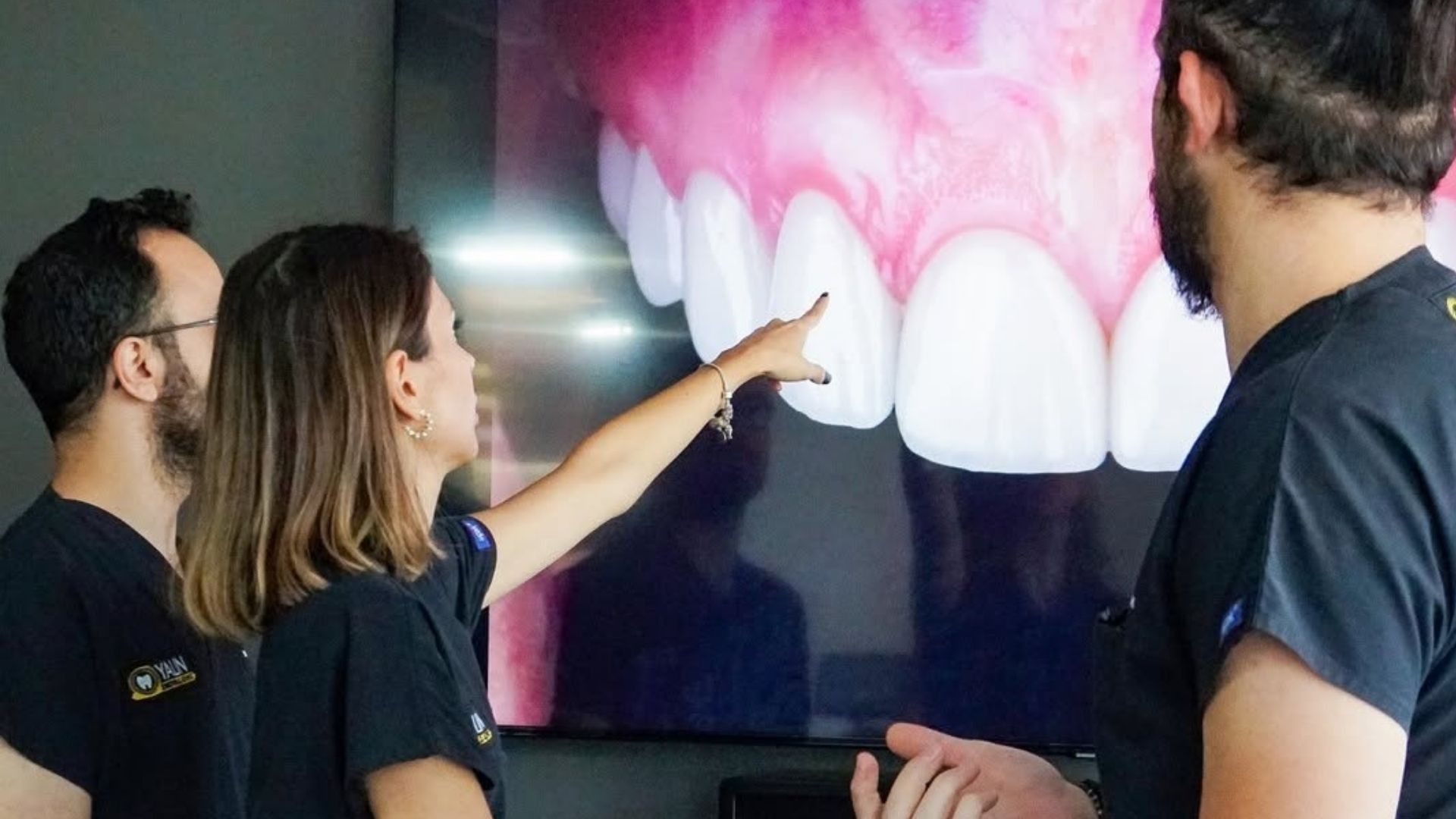What is gum disease?
Gum disease is when your gums get irritated or infected, usually from not cleaning your teeth well enough.
Like bleeding when you brush, feeling swollen, or looking red.
Usually caused by plaque hanging around too long. But the good news? With proper brushing and regular checkups, you can totally keep it in check.

What causes gum disease?
- Poor oral hygiene
- Plaque and tartar buildup
- Smoking or tobacco use
- Hormonal changes (e.g. pregnan-cy)
- Diabetes or high blood sugar
- Genetics (family history)
- Chronic stress
- Weak immune system
- Certain medications
- Poor nutrition or vitamin deficiency
Most of the time, it just comes down to not cleaning your teeth properly.
If you skip brushing or flossing, all that leftover food and bacteria stick around, and your gums start to get irritated.
But it’s not only about brushing.
Smoking makes things worse. So does stress, certain health issues like diabetes, or even hormonal changes. And yeah, sometimes it's just bad luck or genetics too.
So, it’s not one single cause, it’s usually a bunch of small things piling up.
But if you catch it early, it’s really not hard to deal with.
Signs of gum disease

|
Sign |
What it means |
|
Bleeding gums |
Especially when brushing or flossing |
|
Red or swollen gums |
Inflammation = your gums are not happy |
|
Bad breath |
Not just from food, could be bacteria build-up |
|
Gum recession |
Gums pulling away from teeth |
|
Loose teeth |
A sign things may be getting serious |
|
Tooth sensitivity |
Exposed roots from receding gums |
|
Pus between teeth/gums |
Infection might be present |
Your gums are pretty good at sending signals when something’s not right. If they’re red, swollen, or bleed when you brush or floss, that’s a big red flag. Bad breath that just won’t go away? Yes, another sign. And if your gums are starting to pull back from your teeth or your teeth feel a little loose, it’s definitely time to see a dentist.
Don’t ignore the signs, early gum disease is super treatable if you catch it in time.
Can you prevent gum disease?
Yes, you totally can and honestly, it’s not rocket science.
Brush your teeth really well (like, not just a quick swipe). Twice a day, minimum. And don’t skip flossing, that’s where most of the trouble hides. Regular check-ups with your dentist? Super important. They catch early signs before things get messy.
Also… smoking? Big no-no for gum health. And what you eat matters too: less sugar, more water, thank you very much.
So yeah, with just a little daily care, you can keep gum disease far, far away.
How is gum disease treated? Treatment options for gum disease
Got some gum problems? No big deal, the good news is, they can be treated. And honestly, the sooner you deal with it, the easier it is.
If it’s just early signs like bleeding or puffiness, your dentist will probably just do a good cleaning and tell you to tweak your brushing a bit. Maybe a different toothpaste, maybe a mouthwash, nothing dramatic.
But if things are more serious like your gums are pulling back or feel sore you might need a deeper clean under the gums. It’s called scaling and root planing. Sounds scary, but it’s not bad at all.
In worse cases, there might be laser treatment or small surgeries to help things heal.
Bottom line? Don’t wait. Gums won’t fix themselves. Catch it early, and you’ll bounce back way easier.
How does gum disease affect dental implants?
Think of your gums like the base of a house. If the ground’s not stable, nothing else really holds up; the same goes for dental implants.
If your gums get infected or weak, the bone underneath can start to shrink. And once that bone goes, the implant loses its grip. It might get wobbly or, in some cases, even fall out. Not ideal.
Even if you already have implants, gum disease can still mess things up. Swelling, soreness, and bleeding are not just uncomfortable; they can put your whole smile at risk.
When is gum disease too advanced for implants?
If gum disease has already caused severe bone loss – we’re talking 50% or more – then implants might not be possible right away. In that case, you’ll likely need gum treatment or bone grafting first.
So, if it’s been years of untreated periodontitis, chances are you’ll need a bit of repair work before thinking about implants. The earlier you act, the better your chances.
Can you get dental implants if you have gum disease?
Yes, but only if the gum disease is treated first.
Trying to place implants while your gums are still infected? Bad idea. The implant won’t heal right, and it might even fail. But if you get the infection under control with deep cleaning, meds, or gum therapy, then implants can still be an option.
Healthy gums = strong foundation. That's the deal.
When are dental implants not recommended?
Dental implants are amazing, but they’re not for everyone, and not at every moment. Here’s when dentists usually say, “Hold up.”
If your gums aren’t healthy, like if you’ve got active gum disease, implants are off the table until that’s treated. Because it’s a fast track to failure.
Not enough bone? That’s another one. Implants need solid bone to anchor into. If you’ve lost too much bone (maybe from missing teeth for too long), you’ll either need bone grafting first or might not be a candidate at all.
Smoking? It’s not a dealbreaker, but it seriously ups your risk of implant failure. Healing is slower, infections are more common… So most dentists ask you to quit or at least cut way back.
If you’ve got uncontrolled diabetes, autoimmune disorders, or take certain medications like bisphosphonates, your body might not heal properly. And implants require your body to play along.
And lastly, age and timing. For kids or teens whose jawbones are still growing, implants are usually postponed until the bone is fully developed.
Implants and smoking
Smoking messes with healing, plain and simple.
It slows down blood flow, which means your implant might not fuse well with the bone. That can lead to infections or even total implant failure.
Dentists usually say: quit before and after surgery, at least for a few weeks. Your smile will thank you.
How do I know if I'm suitable for dental implants?
The best way to know is to ask your dentist.
But if you’re healthy, don’t smoke much, and have enough bone in your jaw, chances are, you’re a good candidate. Still, only a proper scan and check-up can say for sure. So just book a consultation and get the real answer.
What are the other reasons dental implants may not be suitable?
It’s not always a yes for everyone.
If your gums are unhealthy or you’ve lost too much bone, implants might not hold well.
Things like heavy smoking, immune problems, or certain meds can mess with healing too.
So, before jumping in, a full dental check-up is a must just to be sure your mouth’s ready.
What if you can’t have dental implants?
It’s okay; not everyone’s a match for implants, and that’s totally fine.
You’ve still got great alternatives. Many people go for dental bridges or modern dentures, and honestly, they can look just as good.
The important thing is finding something that works for you. Your dentist will help you figure it out. Just a different path to the same goal: a smile you feel good about.
What alternative treatments might work instead?
If implants aren’t your thing (or just not an option right now), don’t worry; you’ve got solid backups.
A dental bridge can fill the gap using nearby teeth for support. It’s fixed in place, looks natural, and works great for one or two missing teeth.
Removable dentures are another option, especially if you’re missing several teeth. Today’s versions are much better than the bulky ones from the past – lighter, more comfortable, and way more natural-looking.
And if you just need a short-term fix while you figure things out, temporary partials can help too.
The best part? Your dentist can help you choose what fits your lifestyle, budget, and smile goals. There’s always a way forward.
Frequently Asked Questions
Can you have dental implants with receding gums?
Yes, but it depends.
If your gums have receded a lot, you might need extra treatments first, like a gum graft or bone support. But mild cases? Usually not a dealbreaker. Your dentist will check and guide you.
Can you get dental implants with bone loss?
Yes, but you might need a bone graft first. It helps build a strong base so the implant stays put. Your dentist will let you know if it’s needed.
Can you have false teeth with gum disease?
Yes, but not right away.
If your gums aren’t healthy, false teeth won’t sit well. They might feel loose, hurt more, or even make the infection worse. So, first step? Get those gums treated.
Once things calm down, dentures or other options can work just fine. Healthier gums = a better fit and way more comfort.
Who can't have dental implants?
People with uncontrolled diabetes, severe gum disease, major bone loss, or those who smoke heavily may not be good candidates. Furthermore, if your jaw hasn’t fully developed (like in kids), implants usually aren’t recommended.
How long should you wait after treatment for implants?
You need to wait 3 to 6 months after gum disease treatment before getting implants. That gives your gums time to heal and your bone a chance to get stable.
But every mouth is different; if your case was mild, your dentist might greenlight things sooner. If it was more serious, like a deep bone infection, it might take longer. Either way, your dentist will check everything first and let you know when it’s safe to move forward.
Please contact us for more information.






